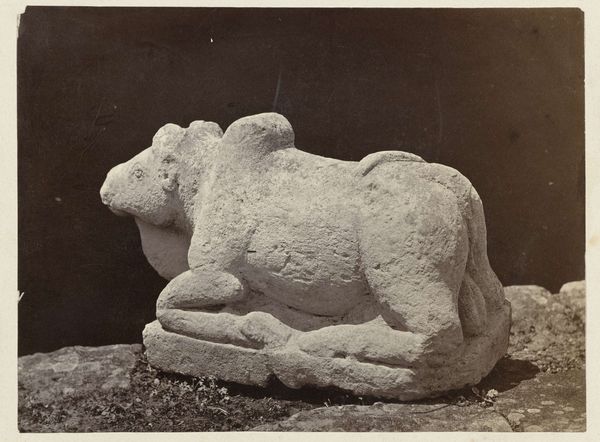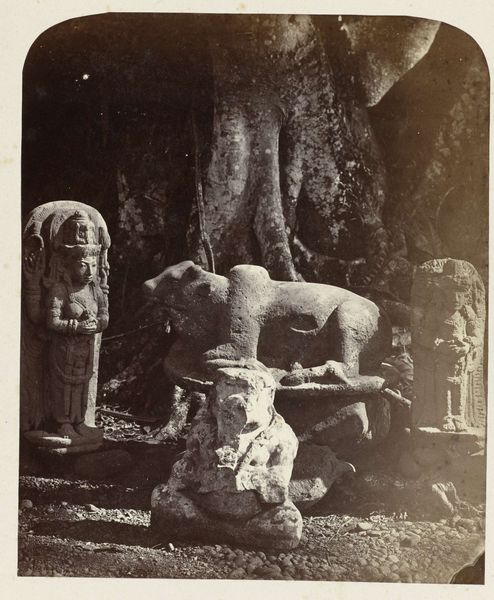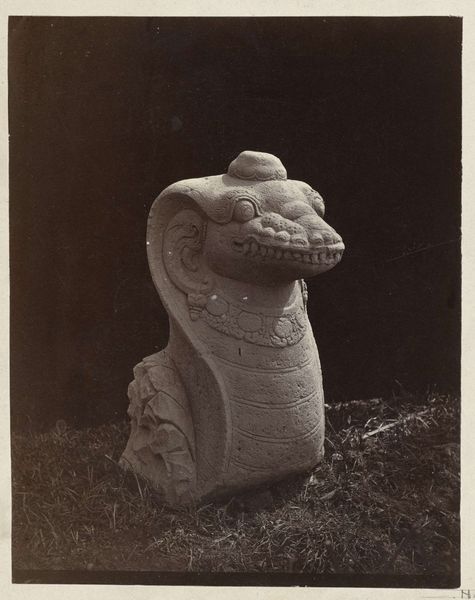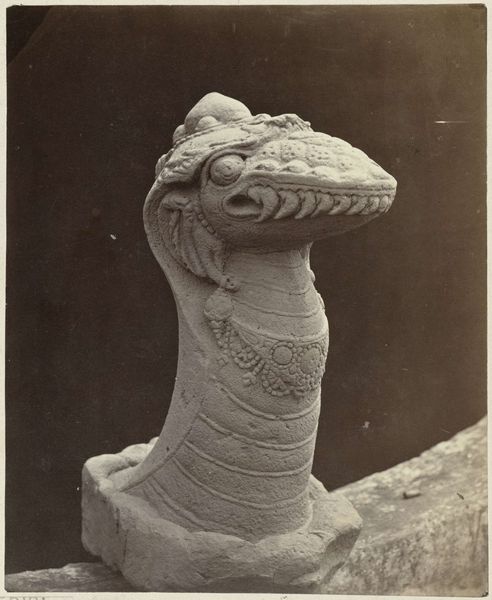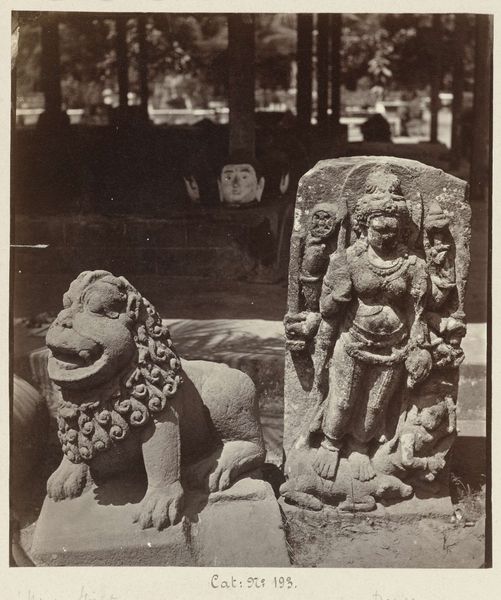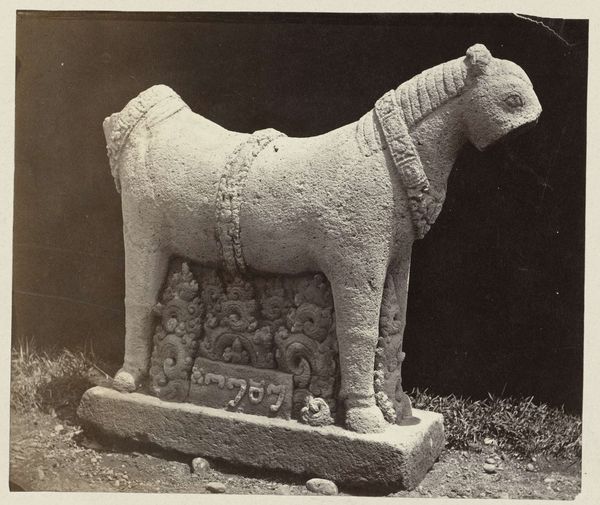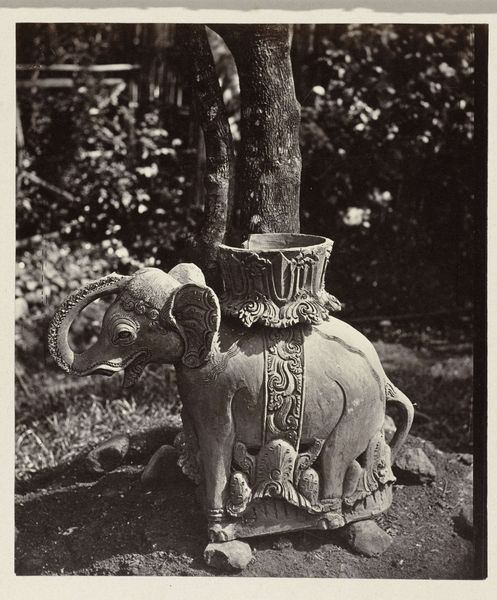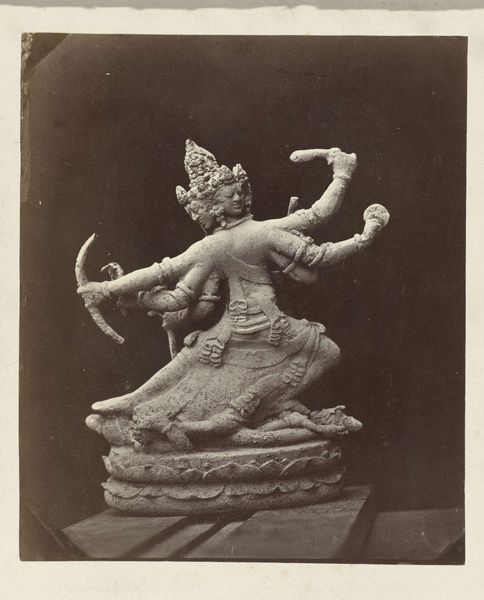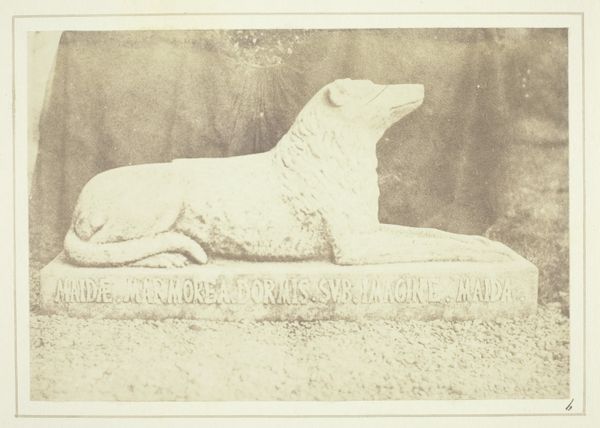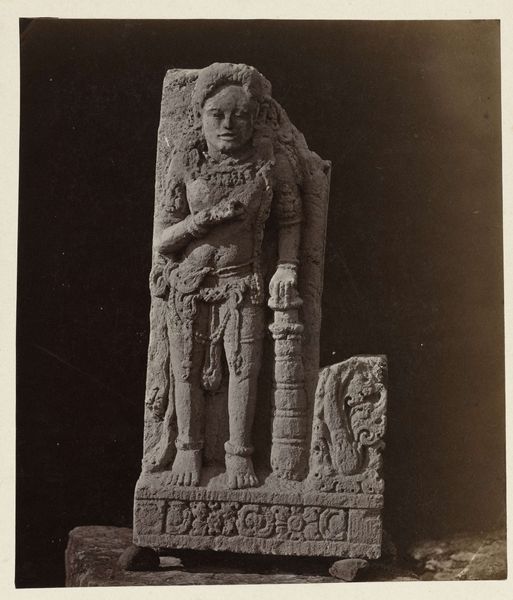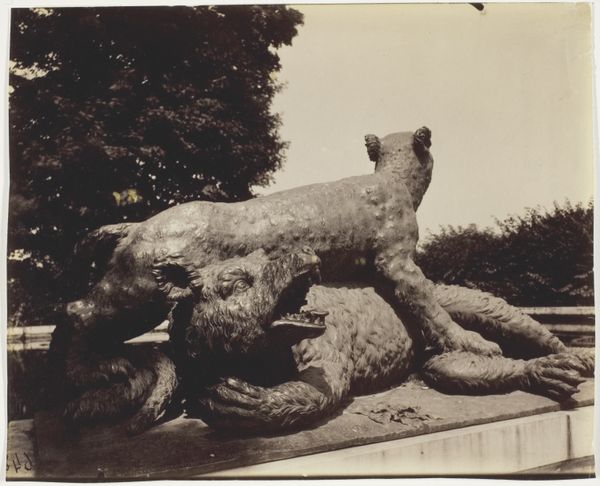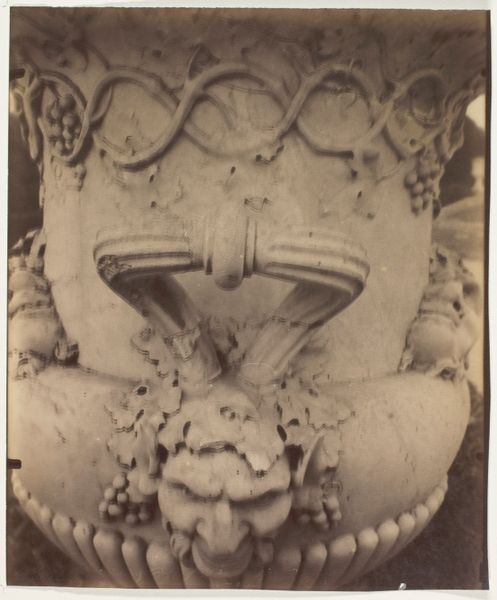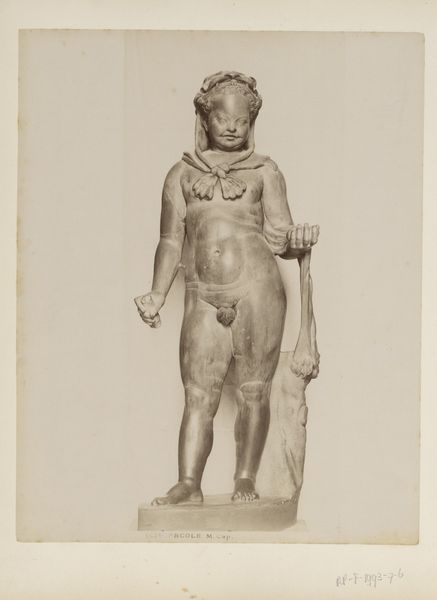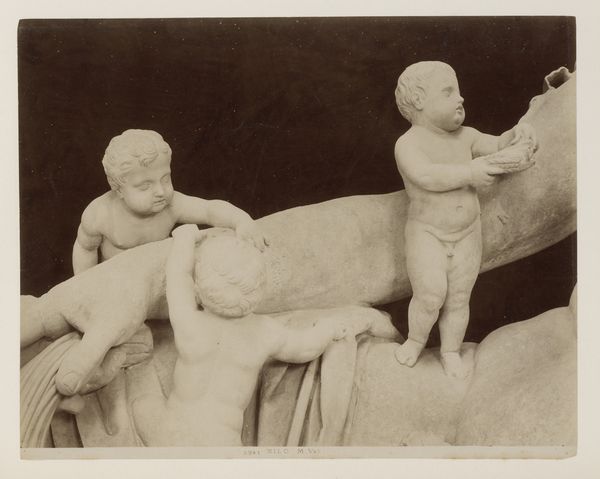
Nandi, the vehicle of Shiva. Dieng Plateau , Wonosobo district , Central Java province , 8th - 9th century Possibly 1864 - 1867
0:00
0:00
ceramic, sculpture
#
animal
#
sculpture
#
asian-art
#
ceramic
#
figuration
#
ancient-mediterranean
#
sculpture
Dimensions: height 170 mm, width 210 mm
Copyright: Rijks Museum: Open Domain
Curator: I am struck by its stillness. It has this contemplative almost stoic quality, this ancient bull in repose. Editor: Precisely. We're looking at a photograph of a sculpture, thought to be Nandi, Shiva's vehicle, possibly taken by Isidore Kinsbergen sometime between 1864 and 1867. The sculpture itself comes from the Dieng Plateau in Central Java, dating back to the 8th or 9th century. Curator: Java! That’s interesting, it looks like ceramic to me. There is a heaviness to it despite its recumbent posture. I would imagine that relates back to how it was originally worked. What would a piece like this have meant to its makers and audience? Editor: Well, Nandi, the bull, serves as a potent symbol in Hinduism. He's not just a ride, but a gatekeeper to Shiva, representing strength, faith, and devotion. To behold Nandi, whether as a statue or a temple carving, it’s an entry point into connecting with Shiva himself. The iconography surrounding it goes back centuries with rich cross-cultural presence across different Asian temples, especially of the Chola Dynasty. Curator: Given the volcanic soil composition of Java, you have to wonder how it affects the choices and limitations facing the original sculptor when they are thinking about materials for Nandi. But also this highlights something critical about its later role in cultural memory. Editor: It certainly highlights a blending of practical resourcefulness with symbolic weight. A great deal hinges on availability and access to different sources in antiquity. Curator: Absolutely. It emphasizes that artistic creation doesn't happen in a vacuum. Material circumstances leave traces in the form, as this photograph illustrates, so powerfully, so much later. Editor: It also speaks to a continuation of beliefs and artistic practices over centuries in a singular, visually striking form, I find that compelling. Curator: As do I. This really gets you thinking about time, endurance, and the layers of meaning we attach to these objects.
Comments
No comments
Be the first to comment and join the conversation on the ultimate creative platform.
